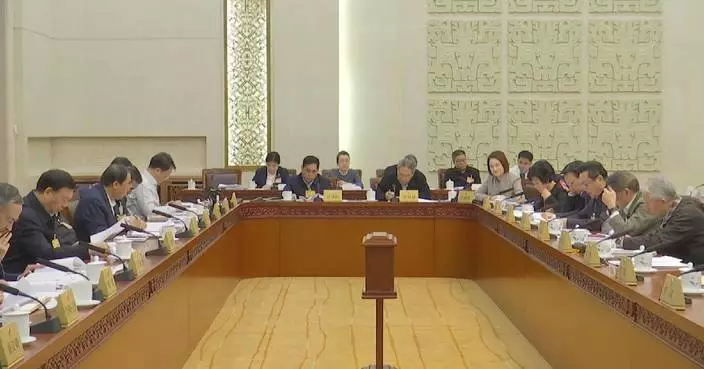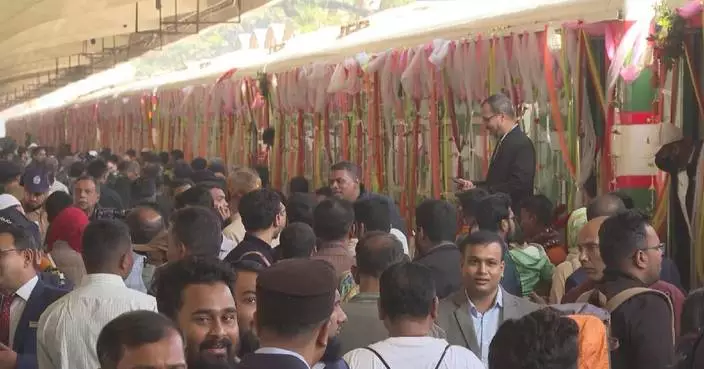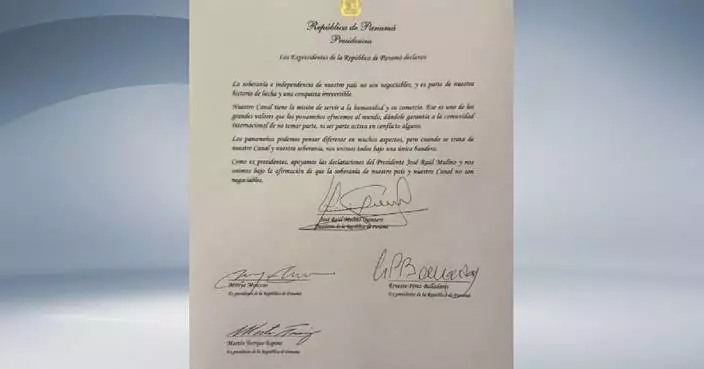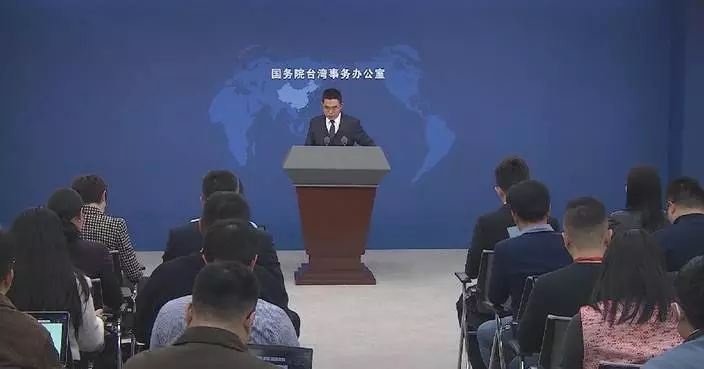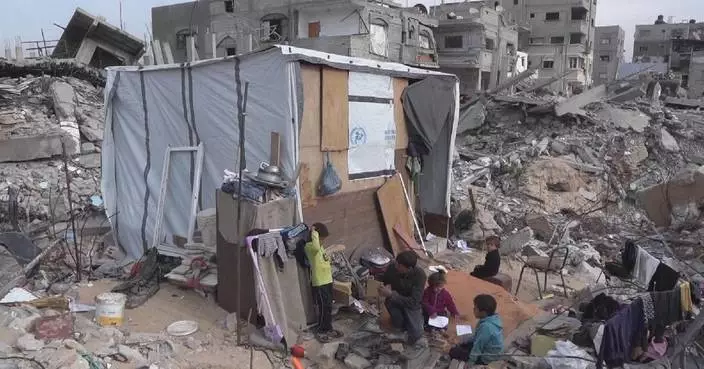As the assassination of Hamas Politburo Chief Ismail Haniyeh raises concerns about ceasefire negotiations, Palestinians in the Gaza Strip have nonetheless expressed resilience and said they expect new leaders to emerge.
Early Wednesday morning, Haniyeh's residence in Tehran was hit in an airstrike after he attended the inauguration of Iran's new president, resulting in the death of the high-ranking Hamas official and a bodyguard.
The Islamic Revolution Guards Corps of Iran says Haniyeh was killed by an "air-launched guided projectile" that struck the building. The attack happened just hours after Israel's strike on Beirut, which killed Hezbollah senior commander Fuad Shukr.
Shafiq Daher, a resident in Gaza, described Haniyeh's assassination as a significant loss and said he expects a reaction from regional players.
"It's an irreparable loss, there will not be as humble a leader as Ismail Haniyeh. Secondly, I believe his killing will have a strong impact on the negotiations. We hope that there will be a strong response to his assassination, whether from Iran, Hezbollah or even from Gaza," he said.
Abu Odeh, another resident, highlighted the resilience of the Palestinian cause, insisting that new leaders always emerge.
"The Palestinian issue is always a birth of new leaders, whether Ismail Haniyeh or someone else was killed. During the past years they have assassinated many leaders in most of the resistance movements, not just Hamas, and despite that, new leaders were born. This is the characteristic of the Palestinian cause and the characteristic of the people of Gaza who live with that," Odeh said.
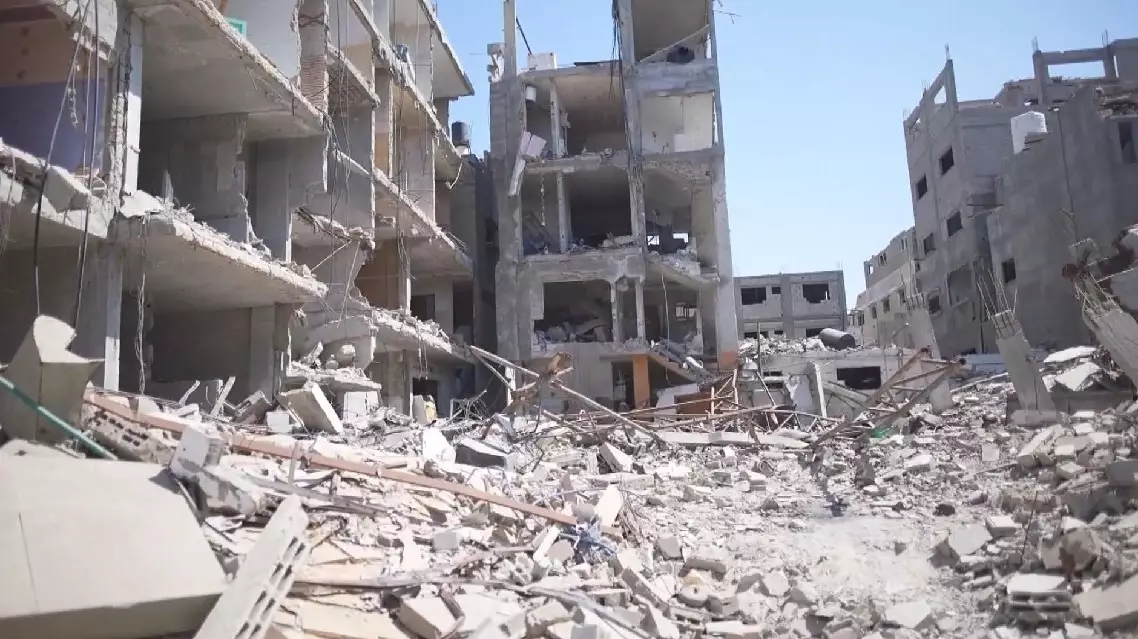
Palestinians in Gaza display resilience following Hamas leader's assassination
The Food and Agriculture Organization of the United Nations (FAO) estimated that daily fish catches in the Gaza Strip between October 2023 and April 2024 dropped to only 7.3 percent of that of 2022, which is expected to further worsen the food insecurity and famine risks in the region.
According to Ahmed El-Ejla, project coordinator at Al-Tawfiq Cooperative Society for Fisheries, many fishing boats, nets and conservation facilities were destroyed in the latest round of the Israel-Hamas conflict which broke out in October last year.
"Fishermen in Gaza are supposed to catch 15 to 20 tons of fish on a daily basis during this season. However, they would only catch 2 to 5 kilograms of fish everyday as of now," he said.
Khaled Radwan Ahmad Al-Laham, a 35-year-old fisher from Khan Younis who previously benefited from the marine cage farms within the FAO project, was able to make a living. He said the war had destroyed his life, and left local fishers in huge losses "We were able to get by before the war. The sea provided us with a source of income and employment. We were satisfied and getting by as everything just went fine. However, the war broke out and brought an end to everything." he said.
Israeli forces have imposed a fishing ban over adjacent waters off the Gaza Strip, which restricted the entry of local fishers, leaving most fishermen without an access to the sea for fishing.
Even if they fish in near-shore waters, fishermen still face great security risks.
"Most of the fishermen mention that their assets, their vessels, all of their belongings have been destroyed during the war. They cannot access the sea."said Wael Aldaya, FAO fisheries project manager.
Local fishers hope that they can reach the waters as early as possible to continue their normal lives. "My wish is that they could open the sea for us, so we can go fishing safely. Then I hope they would provide us with fishing supplies, like nets, fiberglass and these things, so we can survive on our own," said Khaled Radwan Ahmad Al-Laham, a local fisher. .
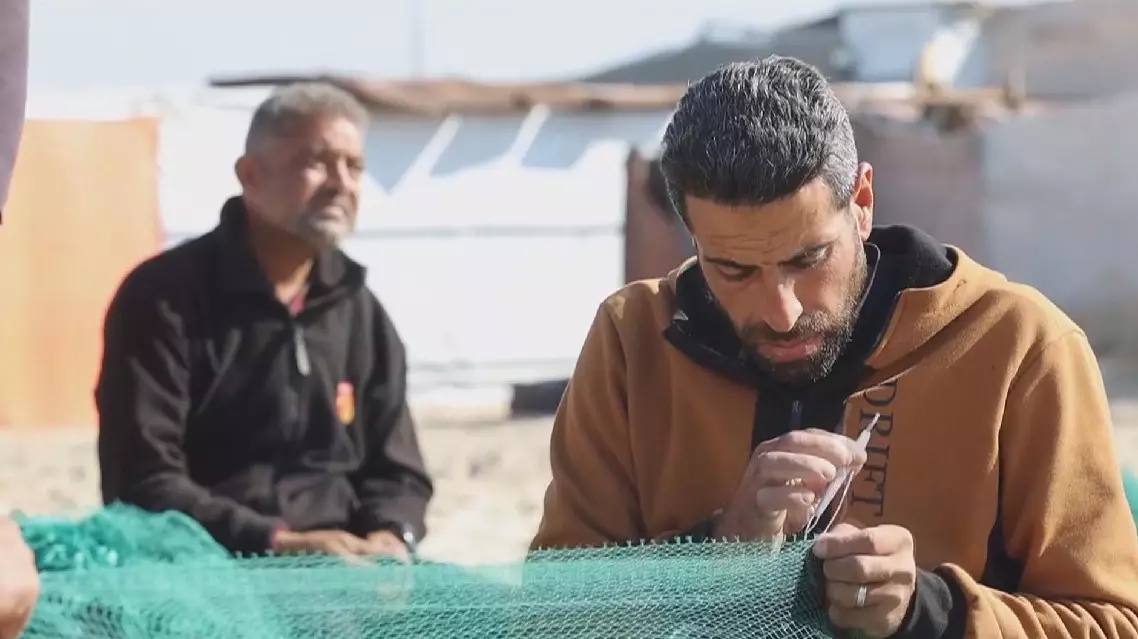
Gaza's fishing industry hit hard in latest round of Israel-Hamas conflict




